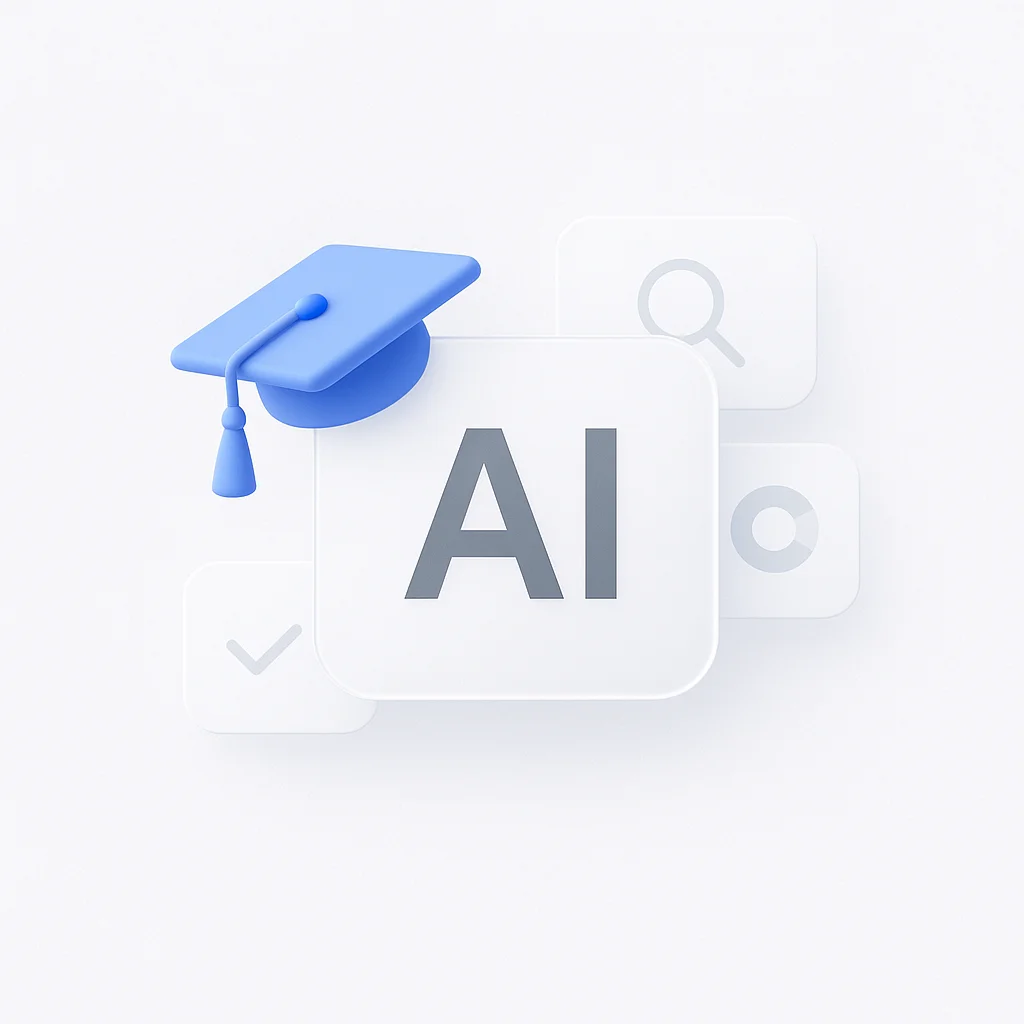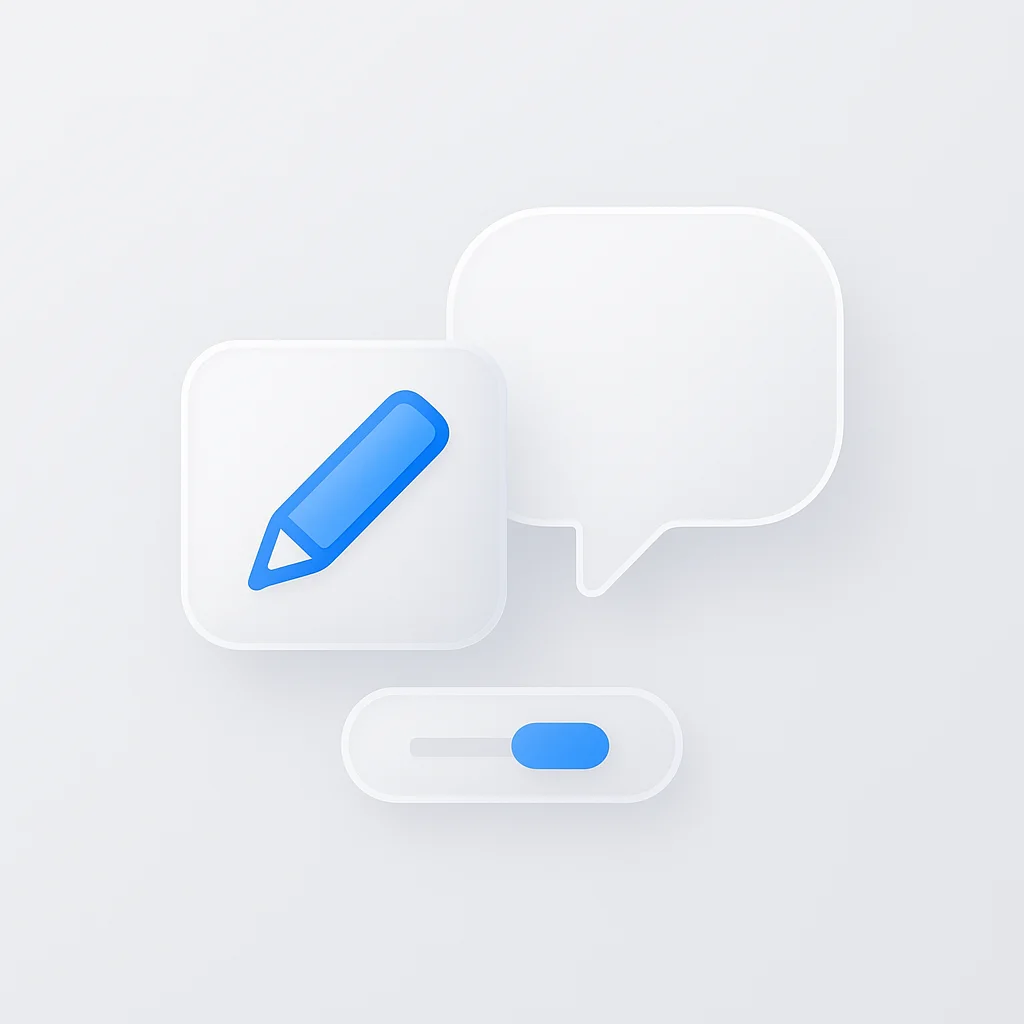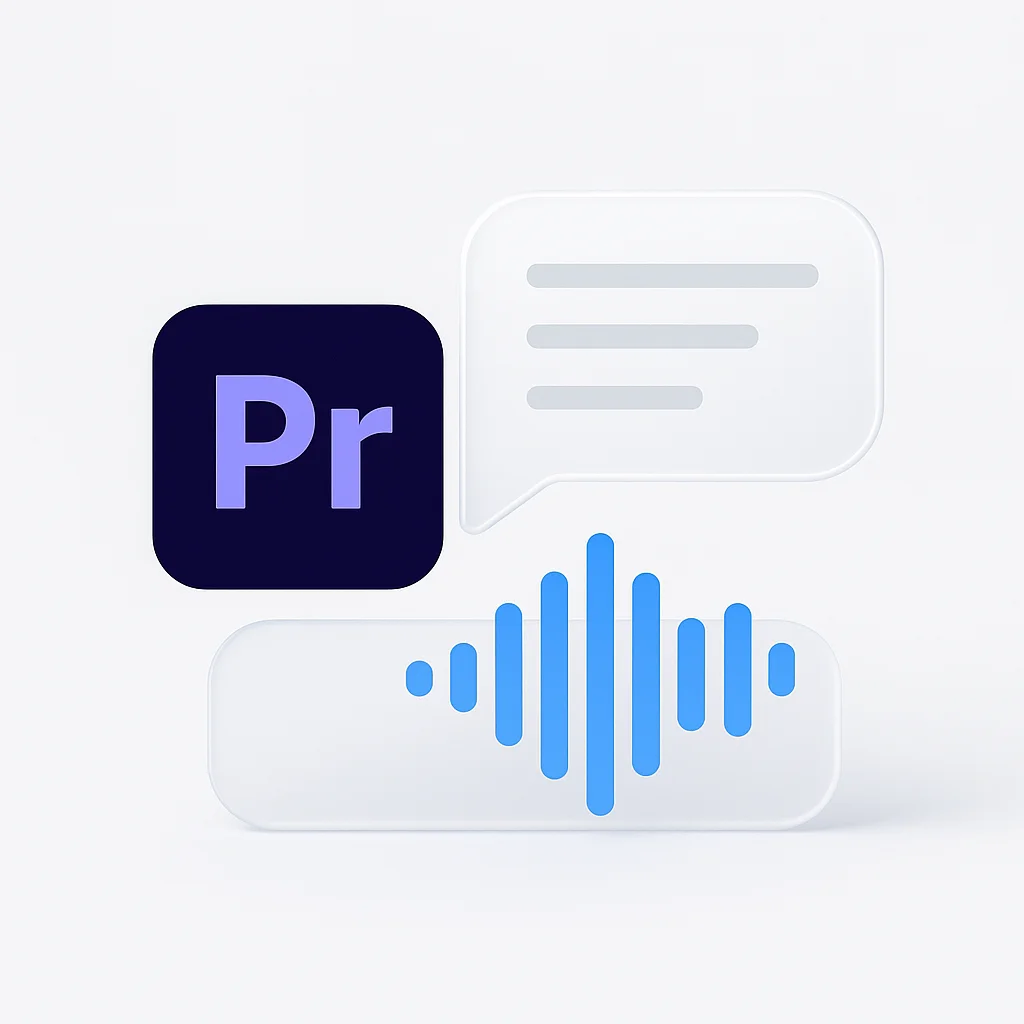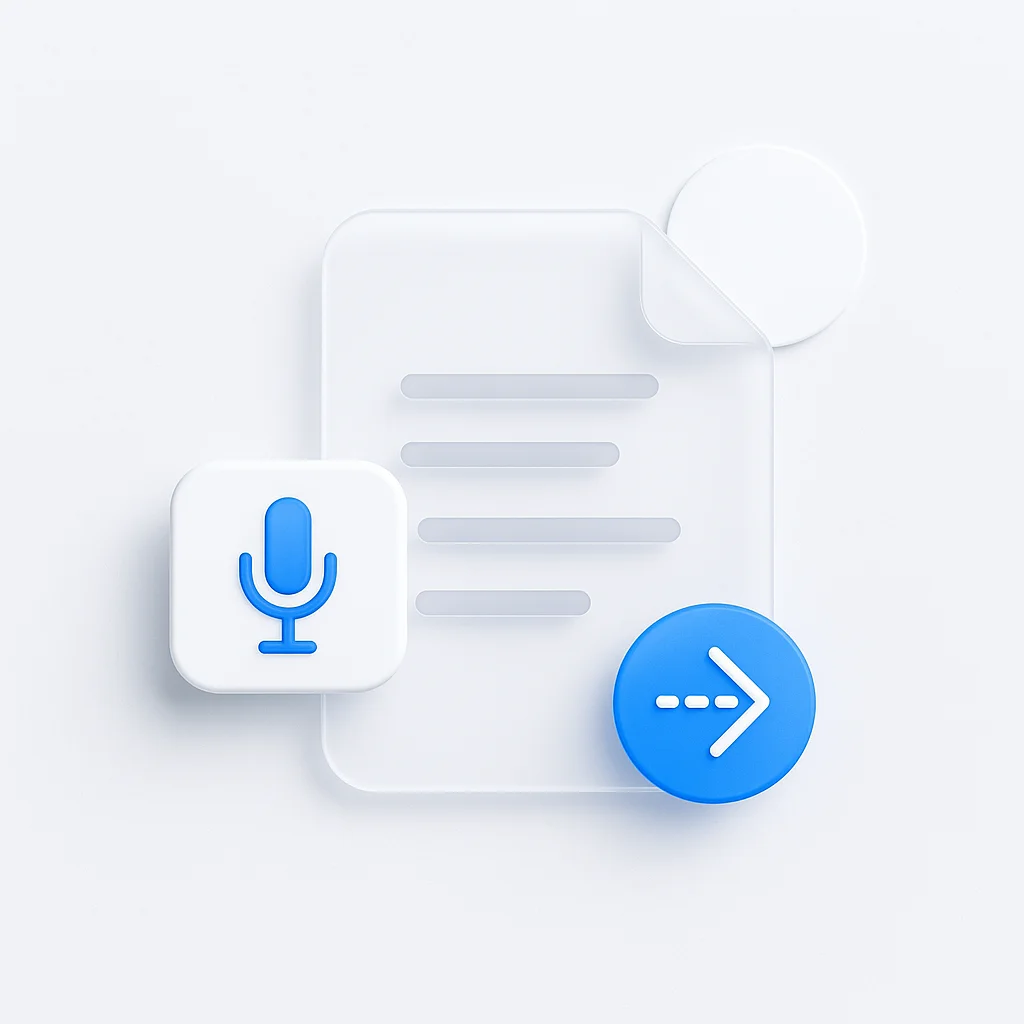Diving into Artificial Intelligence can feel like trying to drink from a firehose. The field is vast, the jargon is complex, and it seems like you need a Ph.D. in advanced mathematics just to get started. But here’s the truth: anyone with curiosity and the right resources can learn AI. The key is finding the right starting point.
This guide is designed to cut through the noise. We’re not just listing random AI courses for beginners; we’re providing a curated selection for those with no prior experience. Whether you want to understand the business implications of AI, learn to code your first machine learning model, or simply start a new career path, there is an AI training program for you. We’ll explore the best free and paid options to help you go from novice to knowledgeable.
As you embark on your learning journey, you’ll also want to master the fundamentals of how to ask AI a question effectively to get the most out of AI-powered tools and systems.
Top AI Courses for Beginners: At a Glance
| Course | Best For | Key Skill | Platform | Price |
|---|---|---|---|---|
| AI For Everyone | Non-Technical Overview | AI Strategy | Coursera | Free to Audit |
| Google AI Essentials | Practical Foundations | Generative AI | Coursera | Free to Audit |
| Machine Learning Specialization | Aspiring ML Engineers | Foundational ML | Coursera | Free to Audit |
| CS50’s Intro to AI with Python | Programmers | Hands-on Coding | edX | Free to Audit |
| fast.ai: Practical Deep Learning | Practical Application | Deep Learning | fast.ai | Free |
| IBM AI Foundations | Career Starters | Broad AI Concepts | edX | Free to Audit |
How We Selected the Best Beginner AI Courses
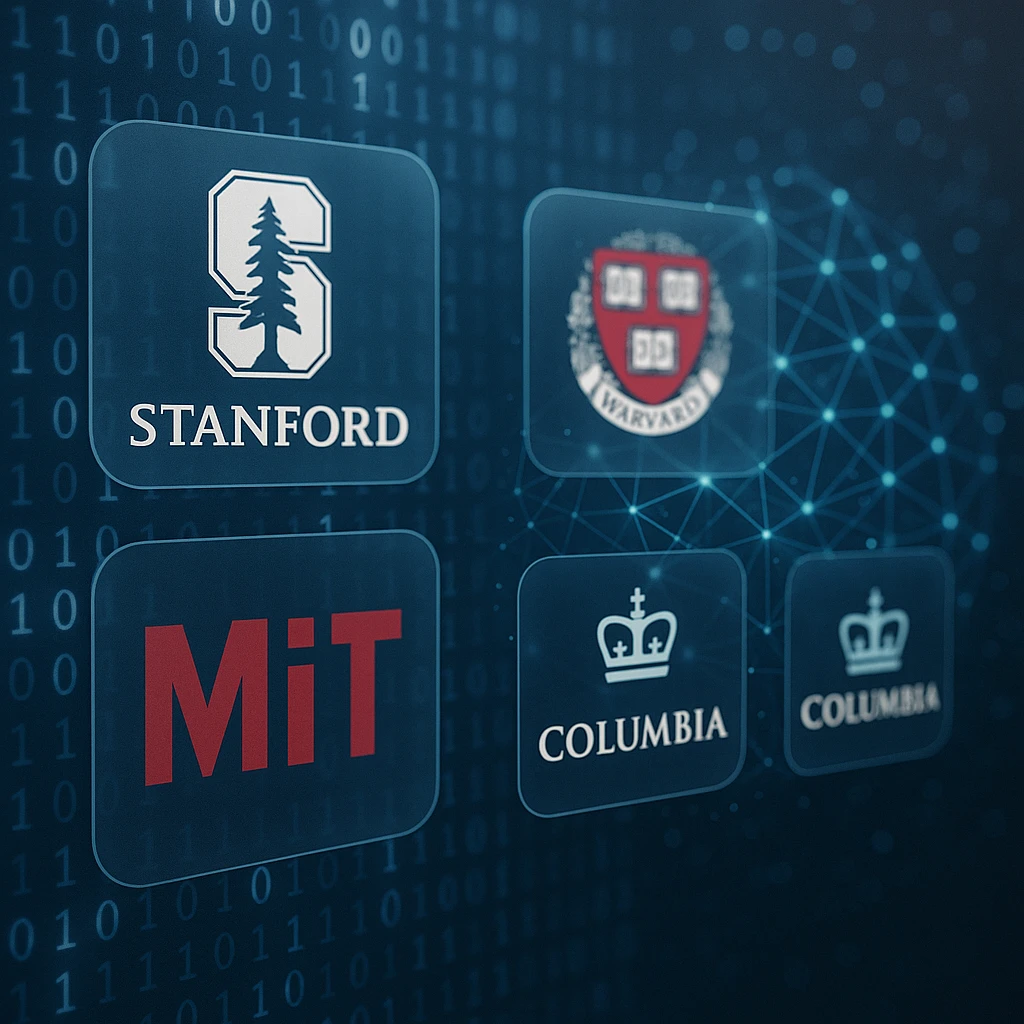
Our selection process focused on criteria that matter most for someone starting their AI for beginners journey:
- No Prerequisites: We prioritized courses that genuinely start from scratch, with no expectation of a computer science or advanced math background.
- Instructor Credibility: All courses are taught by world-class experts from institutions like Stanford, Google, and Harvard.
- Hands-On Projects: The best way to learn AI is by doing. We selected courses that include practical, hands-on projects to build your portfolio.
- Affordability & Access: We included a strong mix of high-quality free AI courses and paid options that provide excellent value through certifications and support.
To maximize your learning experience, consider using ScreenApp’s lecture AI notetaker to automatically transcribe and organize key points from video lectures, allowing you to focus on understanding rather than manual note-taking.
The Top AI Courses for Beginners
AI For Everyone
by DeepLearning.AI on Coursera
Best for Non-TechnicalThe perfect starting point. This course demystifies AI for everyone, focusing on business strategy and ethical implications rather than complex code. Taught by AI pioneer Andrew Ng.
- Understanding AI terminology
- Building an AI strategy
- AI project workflows
- Ethical & societal impact
Google AI Essentials
by Google on Coursera
Best for Practical UseAn official course from Google that teaches you how to use AI tools for daily work and explains the core concepts behind them, including a great introduction to Generative AI.
- Using AI tools effectively
- Prompt engineering basics
- Understanding how AI models are built
- AI for productivity & innovation
Machine Learning Specialization
by Stanford on Coursera
Best Foundational CourseThe legendary Machine Learning course from Andrew Ng, updated for today's landscape. It teaches the fundamental theory and practical application of supervised and unsupervised learning.
- Linear & Logistic Regression
- Building Neural Networks
- Decision Trees & Recommender Systems
- Practical advice for applying ML
CS50's Introduction to AI with Python
by Harvard on edX
Best for ProgrammersBuilding on Harvard's famous CS50, this course dives into the concepts and algorithms at the foundation of modern AI. It requires some Python programming knowledge.
- Graph search algorithms
- Reinforcement learning
- Natural Language Processing (NLP)
- Hands-on programming projects
Practical Deep Learning for Coders
by fast.ai
Best Free Practical CourseA completely free course that takes a top-down, code-first approach. You'll build state-of-the-art models for computer vision and NLP from the very first lesson. Highly practical.
- Training models with PyTorch
- Image classification
- Tabular data analysis
- Deployment and production
IBM AI Foundations for Business
by IBM on edX
Best for Career StartersThis specialization provides a holistic view of AI for business. It covers the basics, applications, and ethics, making it an ideal introduction to artificial intelligence for non-programmers.
- AI applications across industries
- Intro to Machine Learning & Deep Learning
- AI ethics and societal impact
- Building a business-focused AI portfolio
How to Choose the Right AI Course For You
Making a decision can be tough. Here’s a simple framework to help you select the best beginner AI course for your specific goals.
Step 1: Define Your “Why”
- For Career Change: Look for a comprehensive specialization with a professional certificate, like the Machine Learning Specialization. These structured programs are great for building a portfolio.
- For Business Knowledge: If you want to understand AI to make better business decisions, AI For Everyone is the gold standard.
- To Build Things: If you already know some code and want to start building AI applications, dive into CS50’s Intro to AI or fast.ai.
- For Note-Taking: Many courses involve lectures and presentations. Our comprehensive guide on AI that listens and takes notes can help you capture and organize information from video courses more effectively.
Step 2: Assess Your Learning Style
- Theory-First: If you want to understand the math and theory behind the models, start with the Stanford Machine Learning Specialization.
- Practical-First: If you prefer to learn by doing and see results quickly, fast.ai is your best bet.
- Interactive: Platforms like DataCamp offer bite-sized, interactive lessons with in-browser coding exercises. For a comprehensive comparison of learning platforms, explore our guide to the best online learning platforms to find your ideal learning environment.
Step 3: Check Prerequisites
Be honest about your current skill level. If the thought of coding is intimidating, choose an AI course for beginners with no programming experience. Trying to jump into a code-heavy course without the basics can be frustrating and counterproductive.
For those interested in exploring practical applications, our guide to AI tools for developers showcases how AI is transforming programming workflows and development processes.
Is Learning AI Worth It? A Look at the Job Market
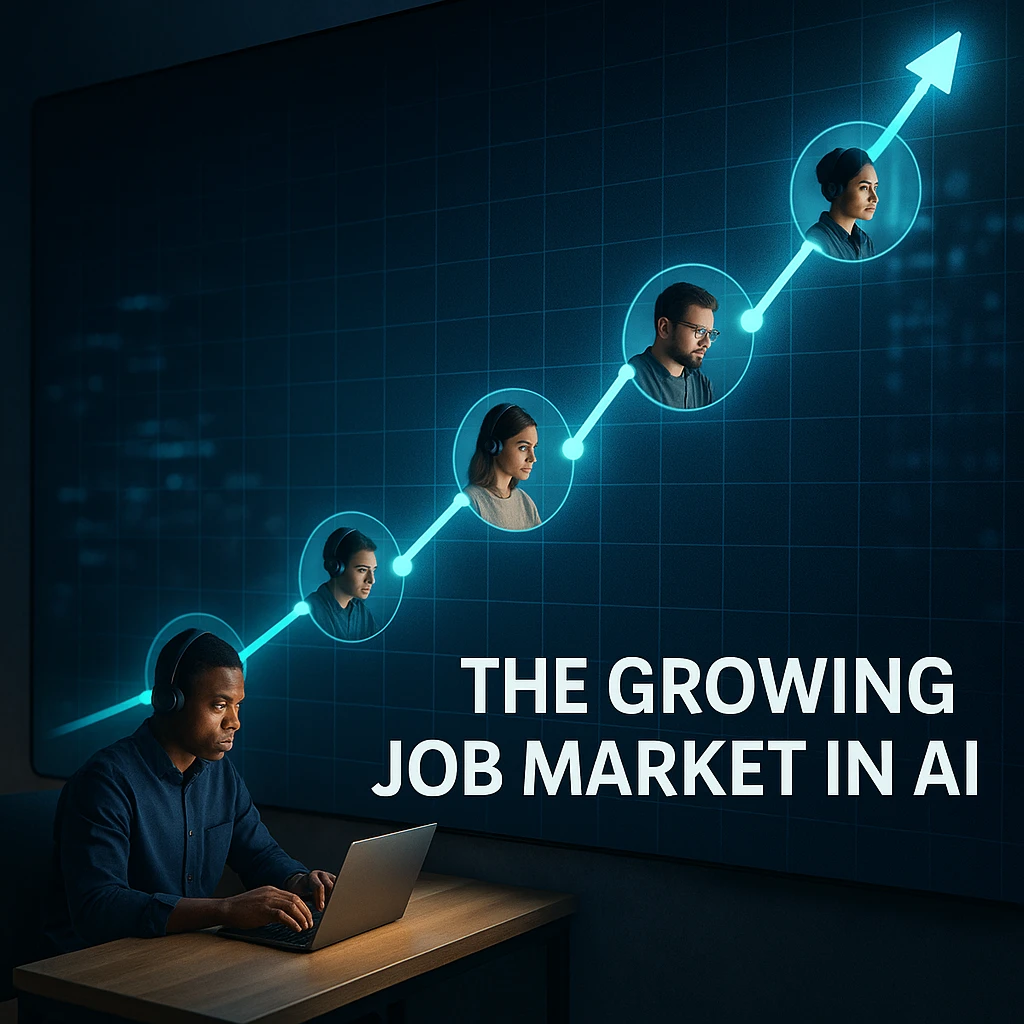
Absolutely. The demand for AI skills is exploding across all industries. According to Harvard, roles like Machine Learning Engineer and AI-powered Marketing Strategist are among the most in-demand jobs. Furthermore, a report from PwC predicts that AI could contribute up to $15.7 trillion to the global economy by 2030, creating enormous opportunities. This isn’t just a trend; it’s a fundamental shift in the job market.
Frequently Asked Questions (FAQ)
Q: Do I need to be a math genius to learn AI?
No. While concepts from linear algebra, calculus, and statistics are the foundation of AI, modern libraries like TensorFlow and PyTorch handle most of the complex math for you. A conceptual understanding, which the best beginner courses provide, is sufficient to start.
Q: What is the best programming language for AI?
Python is the undisputed king of AI and Machine Learning. Its simple syntax, extensive libraries (scikit-learn, Pandas, NumPy), and massive community make it the ideal language for this field.
Q: Can I get a job after completing an online AI course?
Yes, but it requires more than just a certificate. The key is to use the course to build a portfolio of hands-on projects. Employers want to see what you can build. Combine your certificate with a strong GitHub profile showcasing your projects to demonstrate your skills.
As you build your portfolio, consider using ScreenApp’s AI audio pen to quickly capture and convert your brainstorming sessions and project ideas into organized, searchable notes.
Q: How long does it take to learn the basics of AI?
You can learn the fundamental concepts in just a few weeks with a course like “AI For Everyone.” To become proficient enough to build basic models, plan for 3-6 months of dedicated learning and practice with a more in-depth AI training program.
To enhance your study sessions, AI tools for audio can help you process and analyze course audio content more effectively, while our transcript summarizer automatically extracts key points from video lectures.
Conclusion
Starting your journey to learn AI is more accessible today than ever before. The myth that AI is only for academics and elite coders is outdated. With high-quality, structured, and often free online courses, the barrier to entry has been lowered for everyone.
The best first step is simply to begin. Choose a course from this list that aligns with your goals, commit to the first lesson, and build momentum. Whether you want to make a career change, enhance your current role, or simply understand one of the most transformative technologies of our time, your AI for beginners journey starts now.
For educators looking to integrate AI into their teaching practice, explore our curated list of best free AI tools for teachers to enhance classroom productivity and student engagement.
